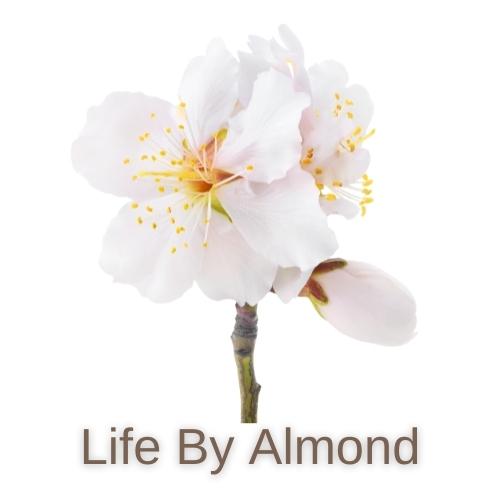Are you an almond tree grower searching for ways to maximize your crop’s use? Or perhaps a curious Amateur about the history and uses of this popular nut? If either is true, then you have found an interesting article!
Almonds are widely known as a delicious food source in many cultures around the world. But it may surprise you to learn that they have also been used in traditional medicines and health treatments since ancient times.
In this post, we will explore how different historical cultures leveraged almonds for healing properties, from treating various ailments to preventative care rituals. So pull up a chair and get ready to journey through time with us–you won’t want to miss what lies ahead!
What is the medicinal use of almond trees?
Almond trees are not just a pretty addition to any backyard, they have numerous medicinal benefits. A key part of almond trees’ healing properties lies in their leaves, which are packed with antioxidants and nutrients that can help fight off colds and infections.
The oil extracted from the almond tree is widely utilized in the medical field today due to its anti-inflammatory, antioxidant, and antiseptic properties. It’s been found to be incredibly effective in treating skin irritation, cuts, wounds, and acne, as well as reducing itching.
Additionally, crude extract from the bark of the tree can be applied topically for deeper wound healing, scar removal, and even cancer therapy. Finally, almonds themselves provide a healthy dose of Vitamin E, magnesium, and healthy fats -all important components for general health and well-being. Truly an amazing source of healing!
Is almond a medicinal plant?
Are almonds sure a delicious snack, but did you know they have medicinal properties as well? Many cultures have used almonds for generations to address various health concerns — from reducing cholesterol to moisturizing dry skin.
The healthy fats and antioxidants in almonds make them an excellent natural remedy. In Traditional Chinese Medicine, almond is considered a “cool” food, meaning they can help reduce inflammation and fever.
It’s also been observed that the minerals in almonds can protect organs and provide overall energy-boosting support. All in all, those of us who enjoy nibbling on almonds may be benefitting our bodies with more than just the taste!
What is almond in Chinese medicine?
Almond is a major star in Chinese medicine. It’s considered a powerful anti-inflammatory, helping to reduce swelling and inflammation from conditions like arthritis and chronic pain. Additionally, almonds are known for their ability to boost the immune system, aiding in fighting off colds and other illnesses.
They’re also a good source of iron, magnesium, dietary fiber, and protein; all of which have been linked to improved overall health. All of these benefits make it easy to understand why almond is used so frequently in traditional Chinese medicine!
What is the medicinal value of almond seed?
Almond seed, commonly known as the kernel of the almond fruit, has numerous medicinal qualities. With a plethora of essential vitamins and minerals like vitamin E, magnesium, manganese, and phosphorus, almond seeds have extraordinary nutritive value and can be used to treat several ailments.
The goodness of almond seeds lies not only in their ability to provide nutrition but also in their wax esters that help reduce cholesterol levels and strengthen immunity. Additionally, regular consumption of almonds helps to improve skin health, reduce inflammation, control blood sugar levels, and boost brain power.
So next time you don’t fancy popping some pills or powders for your health concerns, try munching on a few almonds – you might just find that nature is a better doctor than you knew!
What diseases do almonds prevent?
Almonds are a great addition to any healthy diet! Not only are they full of essential vitamins and minerals, but their many antioxidants make them powerful at warding off disease. Studies have shown that almonds can help lower levels of bad cholesterol, reducing the risk of heart attack or stroke.
They have also been linked with reduced risk for cancer, diabetes, and osteoporosis. To maximize the benefits of almonds, it’s best to eat them raw as often as possible. Add them to salads, yogurts, and smoothies for a tasty dose of prevention!
What are the medicinal uses of the almond plant?
Loaded with vitamins, minerals, and antioxidants, the almond plant is gaining increased recognition for its medicinal properties. In the field of alternative medicine, almond oil has been used to fight various skin disorders such as atopic dermatitis and eczema.
Almond leaves can be brewed into a tea that has anti-inflammatory properties and is said to help reduce headaches and intestinal issues. A paste made from grounded almonds is often applied on the scalp to strengthen hair follicles and promote hair growth.
It’s even been demonstrated to help control blood sugar levels in diabetics, helping them to maintain healthy lives free of excessive sugar fluctuations.
Admittedly there’s still work to be done before modern medicine fully accepts these traditional usages of almond plants into the mainstream, but it has already become increasingly clear that this amazing plant holds great promise for medicinal uses beyond what we currently understand today!
What are the medicinal uses of almond leaves?
Almond leaves have many surprising medicinal uses! Rich in antioxidants, they can further the healing process of skin rashes, acne, and other inflammatory skin conditions.
Furthermore, if you’re feeling stressed out or overwhelmed, sneaking some almond leaves into your tea could help with stress relief – due to the high levels of magnesium, they contain. As science advances, more and more studies are finding that almond leaves may even benefit liver health as well!
Whether you choose to use them internally or externally, almond leaves provide numerous benefits. Who knew this luscious nut had so much potential?
What are the benefits of almonds on organs?
There are so many reasons to include almonds in your diet. When it comes to the benefits they provide for organs, you can trust that these small nuts will do wonders.
Almonds are known to help reduce inflammation around organ tissues and even some of the harm caused by environmental pollutants. They also help boost the work of your heart, which works 24/7 to carry oxygen and nutrients throughout your body!
Plus, studies have even found that almonds improve kidney function due to their high levels of magnesium, a mineral essential for proper organ health. So if you’re looking for ways to keep your organs in tip-top shape, look no further than a handful of almonds — your body will thank you!
Are almonds good for the Mediterranean diet?
Almonds are a great addition to any Mediterranean diet. Not only do they have plenty of protein and healthy fats that can help keep you full, but they are naturally sweet and make for a delightful snack.
They add a delicious crunch to dishes like salads and grain bowls, or when roasted with spices they provide a tasty and healthy anytime treat. Almonds also contain lots of important minerals like magnesium, which can help give your metabolism a boost. Plus, since they’re shelf stable it’s easy to keep them on hand at all times!
What is the cultural significance of almonds?
Almonds have long been a symbol of prosperity and good health, celebrated in cultures around the world. Even today, it is not uncommon to find almonds tart as part of Middle Eastern celebrations or used as a blessing during Jewish wedding ceremonies.
In ancient Greece, they were often used in religious rituals and presented as a gift to honored guests at formal occasions. Meanwhile, Hindus use almond flower petals for both traditional weddings and festivals such as Diwali.
Besides their cultural significance, almonds are also an incredibly nutritious food packed with important antioxidants, vitamins, and minerals – making them a must-have in any healthy diet.
Concluding Thoughts
The almond tree has been a mainstay in the traditional medicine of many different cultures throughout history. Different parts of the tree, from the bark to the nut, have been found to provide natural remedies and treatments.
From soothing coughs to providing sore muscles with relief, the almond tree can help individuals stay healthier without waking up their inner chemist. We are fortunate to have such an amazing and multi-faceted healing agent in our midst, and it’s high time we give this valuable resource its due attention.
Whether you’re looking for a combination of health benefits or need to supplement your current remedies with herbal solutions, reaching for an almond-based remedy is one of the best options available.
It’s worth taking some time to get acquainted with the almond tree and its diverse range of medicinal uses so that we can continue to benefit from this rich source of healing long into the future!








